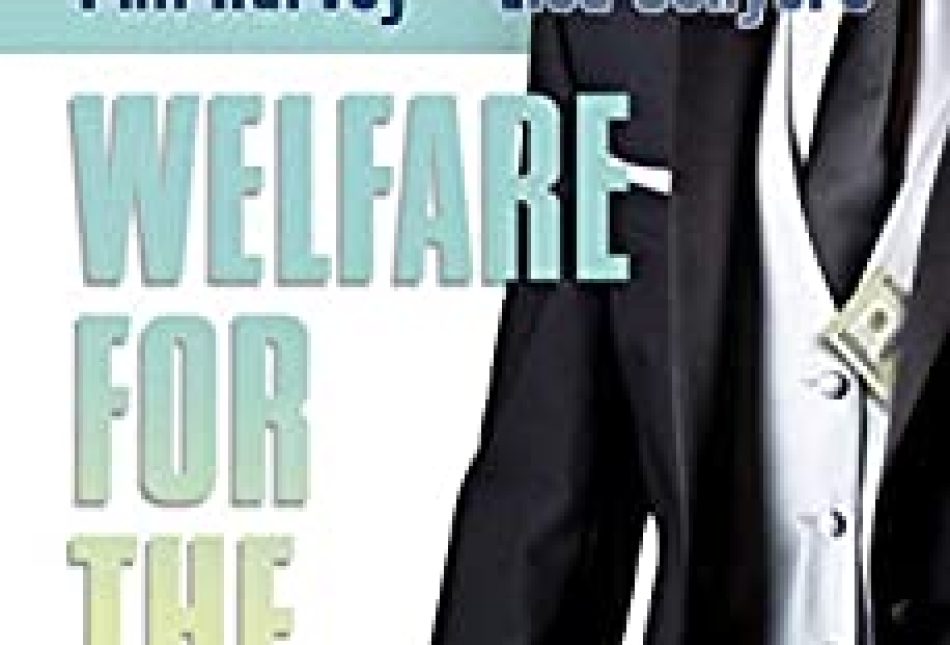Lights, Camera…Tax Breaks? Why Film Subsidies and Other Corporate Welfare Boondoggles Are a Bad Idea for New Mexican Taxpayers

Due to the COVID19 pandemic, the filming of movies and television shows has ground to a halt in New Mexico and around the country. While aspects of the pandemic are devastating to our economy, the shutdown of film is not one of them. That’s because of the outrageous subsidies the State provides Hollywood filmmakers.
In 2019 the Legislature more than doubled the tax subsidy program from $50 million to $110 million. This subsidy expansion would have a massive, negative impact on the State’s budget, especially now that the economic boom of the past few years ended with COVID.
New Mexico is a poor State. Budget cuts and tax hikes will be on the agenda when the Legislature meets in 2021. So, why should taxpayers subsidize Hollywood which grosses $10 billion annually in the U.S., while yearly global box office revenue for American movies nears $38 billion. Yet its profit margins are fattened by American taxpayers, who provide over $1.4 billion in annual subsidies to filmmakers.
Film subsidies are justified by claims that filmmaking will bring jobs and provide money for the local economy. The prestige of having your state’s locations and scenery featured in a popular film plays a role, too—yet, as with sports franchises, the concrete economic benefits generally prove to be elusive.
Today, New Mexico offers some of the nation’s most generous film subsidies, including a 25% tax credit for movies, a 30% tax credit for TV shows, plus a 5 % rebate for resident crew wages if the filming is shot over at least 10 days at qualified facilities (or 15 days if the budget is over $30 million). But these movie-luring investments are nearly always economic flops.
A 2014 Albuquerque Journal article reported that film production in the state had “provided thousands of jobs and generated $1.5 billion in total economic output [from 2010-2014], but film production activity—both movies and TV shows—generated an estimated 43 cents in tax revenue for every incentive dollar spent by the state between 2010-2014.” So, the state lost more than half its investment in movie-making subsidies.
Jim Wisnewski, one of Albuquerque’s more colorful casting agents, had nothing but praise for the role of film and television subsidies in his state:
We say bring it on, it’s great for New Mexico. Throw that state money at Hollywood—bring ‘em in. When they come, they have to spend money in the state, renting cars and hotels, eating at restaurants, and that’s all revenue for us, isn’t it? In fact, we’re proposing a studio be built on the border between New Mexico and Colorado so that those guys can take the 30% tax rebate from New Mexico and the 20% tax rebate from Colorado. They could get back 50% of their taxes that way.
This may seem humorous, but there is nothing funny about taxpayers footing the bill for films the networks are going to film anyway. With New Mexico again facing budget cuts (after having already made some in the recent special session), taxpayer dollars should not be diverted to rich Hollywood film companies.
For many decades, too many of our government’s policies have taken wealth from taxpayers of modest means and provided a big chunk of it to the rich. The same perverse policies are in place today, and there is every reason to believe that they’ll remain in place for the foreseeable future—unless we act as citizens to demand change.
While today’s politicians—especially those vying for the presidential contest in 2020—are proposing ways that the government should act to reduce income and wealth inequality, we ask, at the least, that the government stop making inequality worse.
This is one area of economic policy that the vast majority of Americans of all political persuasions agree on. Liberal or conservative, socialist-leaning or libertarian, Republican, Democratic, or independent—practically everyone will acknowledge the absurdity of having government take from the poor and the middle class to give to the rich.
Yet that’s exactly what happens, every day, in many ways, large and small. New Mexico taxpayers would be well served if their legislature cut such gifts to the rich from their budgets, starting with these ridiculous film subsidies.
*Phil Harvey and Lisa Conyers are co-authors of “Welfare for the Rich,” a new book that was published on August 4, 2020. For more information, go to www.welfarefortherich.com
and @PostHillPress
